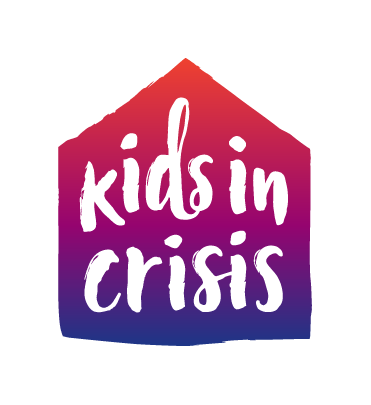
Kids In Crisis empowers and gives a platform for supporters who want to focus their volunteer work on being an advocate. If you want to support our Lighthouse program and advocate for LGBTQ+ youth, or homeless children in our SafeHouse Program, or children and youth in schools, Kids In Crisis has a place for you!
Mental Health Awareness Month is a crucial time to highlight the importance of mental well-being. But advocacy for mental health shouldn’t stop there. It’s a year-round effort that’s especially important for our most vulnerable populations—youth.
By becoming a mental health advocate, you can help raise awareness, reduce stigma, and ensure kids have access to the resources they need. Here’s a step-by-step guide to get you started:
1. Learn the Basics of Mental Health
Educate yourself about common mental health challenges faced by children, such as anxiety, depression, and ADHD. Understanding the signs and symptoms is key to early intervention and getting kids the needed help.
Reliable sources like the National Institute of Mental Health (https://www.nimh.nih.gov/) offer a wealth of information.
2. Understand Mental Health Advocacy
Mental health advocacy can take many forms. It could be raising awareness in your community, fighting stigma around mental illness, or even lobbying for better mental health services for children. Volunteer at Kids In Crisis to be around people with the same passion as you. (https://www.kidsincrisis.org/sub/2024/02/15/volunteer-opportunities-at-kids-in-crisis/) Our team works tirelessly to provide these services, and understanding their mission is a great way to focus your advocacy efforts.
3. Find Inspiration
Look for stories and experiences that resonate with you. This could be from people facing mental health challenges or advocates who have made a difference.
Example: Listen to podcasts featuring mental health advocates who share their journeys and the impact of their advocacy work.
4. Find Your Role
Do you enjoy public speaking? Consider your strengths and how they can contribute to mental health advocacy. Maybe you’d be perfect for organizing a fundraising event, or perhaps your writing skills could be used to create educational materials for parents and teachers.
Example: Volunteer with Kids in Crisis, like our Safetalk Program, to work directly with children, helping with programs, activities, or support services. This kind of work can give you a hands-on role in advocacy.
5. Find Your Advocacy Community
There’s power in numbers! Joining forces with other mental health advocates allows you to share ideas, resources, and support. Joining a community of like-minded advocates can be a source of strength and Inspiration. Connect with groups focused on mental health advocacy, both locally and online.
Example: Attend local events organized by Kids in Crisis or similar organizations. Networking at these events can help you connect with other advocates.
6. Set a Goal
What do you hope to achieve through your advocacy? Do you want to raise awareness in your school, or are you aiming to influence local policy changes? Setting specific goals helps you stay focused and measure your progress.
7. Take Action
Now comes the most important step – taking action! This might involve hosting awareness events, writing to policymakers, volunteering with mental health organizations, or using social media to spread awareness. Consistent action over time leads to meaningful change.
Even if speaking out isn’t for you, there are still lots of ways to spread the word through giving and donations. Our advocates, staff, and volunteers can only do what they do because we have a whole team of donors supporting them every day. Sign up for our newsletter and learn more about how your gifts make a real difference every day.
